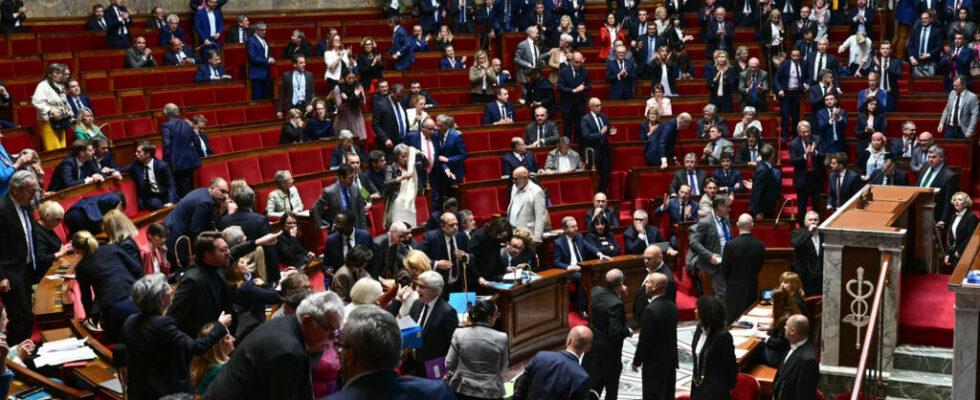This Tuesday, May 28, three European countries, Spain, Ireland and Norway, officially recognized the State of Palestine. In France, this question has agitated the political class for many years and even more so since the attack on Hamas members in Israel on October 7. From left to right, passing the presidential majority, the opportunity to recognize Palestine divides.
3 mins
Overall, one position brings together all political forces: the two-state solution, France’s historic position since 1948 and the creation of Israel. However, real differences exist on the Palestinian question: when and why recognize Palestine?
Macronists divided
Emmanuel Macron says he does not have “ no taboo » on recognition. With a little ambiguity, however, he believes that it must intervene in “ a useful moment “.
Questioned Tuesday by the press during his state visit to Germany, the French president stated, without too many details, “ the resumption of a peace process, a ceasefire and a reform of the Palestinian Authority ” to achieve this. He notably declared that he did not want to achieve “ a recognition of emotion “.
Within the presidential majority, not everyone is on the same line. In the press recently, the former Minister of Foreign Affairs, Jean-Yves Le Drian, judges the recognition of Palestine “ essential “. As for MEP Bernard Guetta, number 2 on the Macronist list for the “Need for Europe” European elections, is in favor of rapid recognition of Palestine. One way, according to him, “ to accelerate » a resumption of negotiations between Israelis and Palestinians.
The left united on the Palestinian question
On the left, the position has been constant since 1948. The Socialist Party, from which Spanish Prime Minister Pedro Sánchez also comes, reaffirms its position totally aligned with that of Madrid. Environmentalists, too, are calling for an urgent break in French diplomatic action.
On the side of France Insoumise (LFI), the Middle East question is a central subject. Their leader, Jean-Luc Mélenchon, sees in the recognition of Palestine, “ a mean of pression » for Israel to cease its operations in Gaza. The European candidate, Rima Hassan, brings a nuance within the Insoumis: she pleads for a solution to a binational state.
Read alsoRecognition of a Palestinian state ignites the National Assembly in Paris
The Insoumis are nevertheless regularly controversial. Their opponents accuse them of engaging in electoral patronage, or even of being anti-Semitic and pro-Hamas.
For the right and the far right, recognizing Palestine now would mean vindicating Hamas
Since October 7, the National Rally (RN) has posed as the defender of Israel, breaking with a not-so-distant past. More classic, the fight against Islamism remains the major axis of its political program.
Result: Marine Le Pen, the head of the RN deputies, defends the two-state solution, but not the recognition of a “ Hamas State » or a “ Terrorist state ”, which would, according to her, fall under the “ political mistake “. On this point, the RN is perfectly aligned with the Les Républicains party.
In 2014, the French Parliament passed a resolution to demand recognition of Palestine. A non-binding text and voted, at the time, by a socialist majority. The then president, François Hollande, also a socialist, never crossed the Rubicon, although he was committed to doing so.
Since Tuesday May 28, 146 countries around the world, including Spain, Ireland and Norwayout of 193, recognize the State of Palestine.
Read alsoRecognition of the Palestinian state: the European Union divided on the issue
